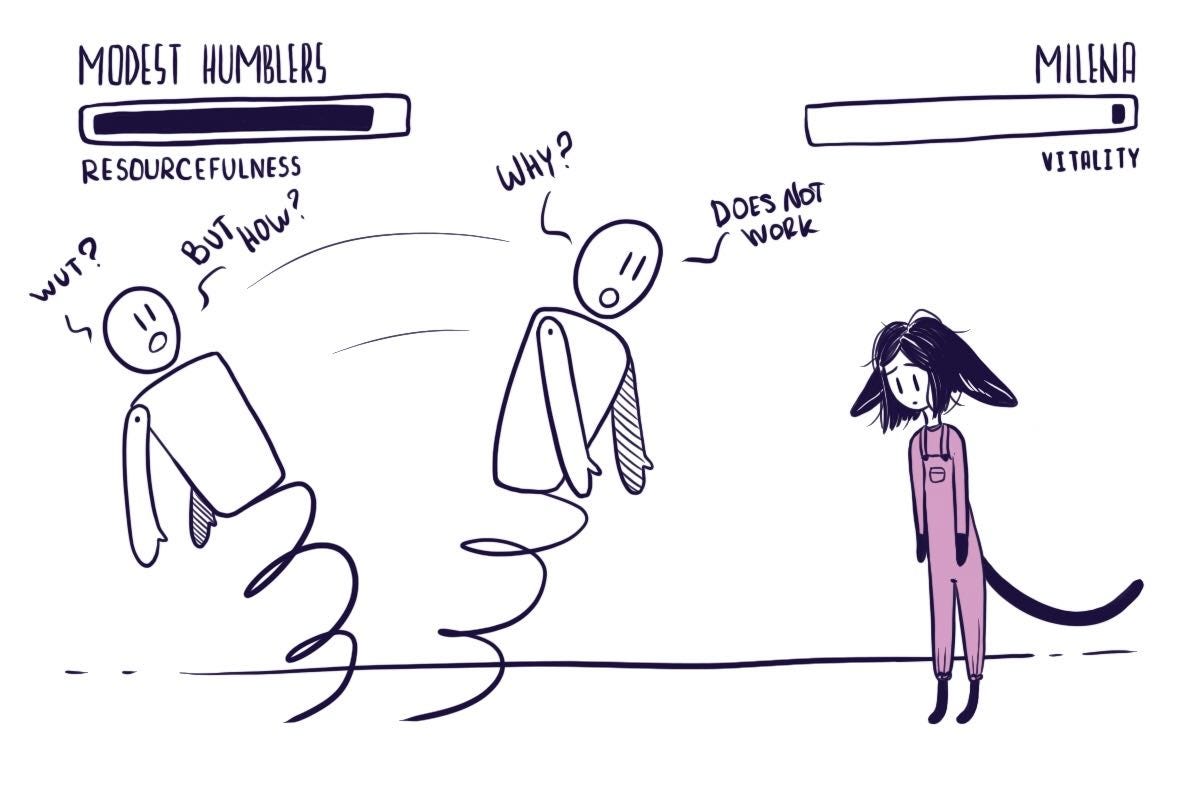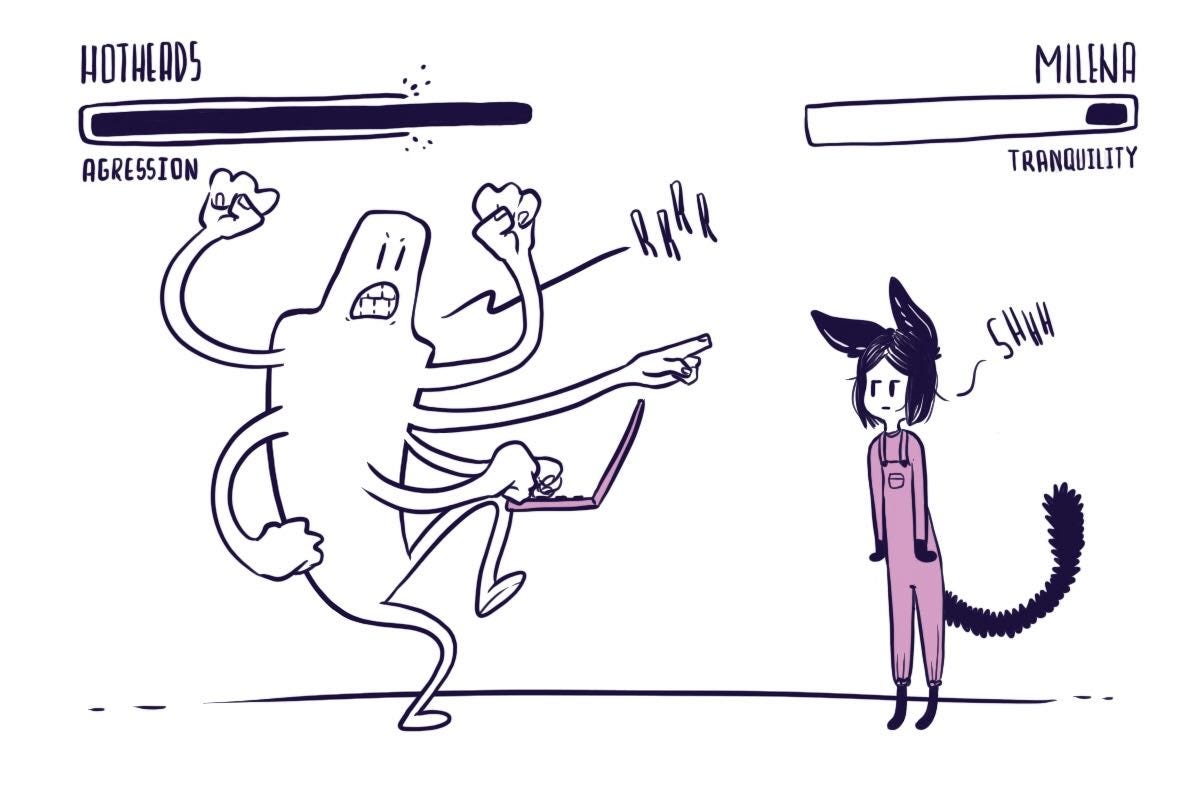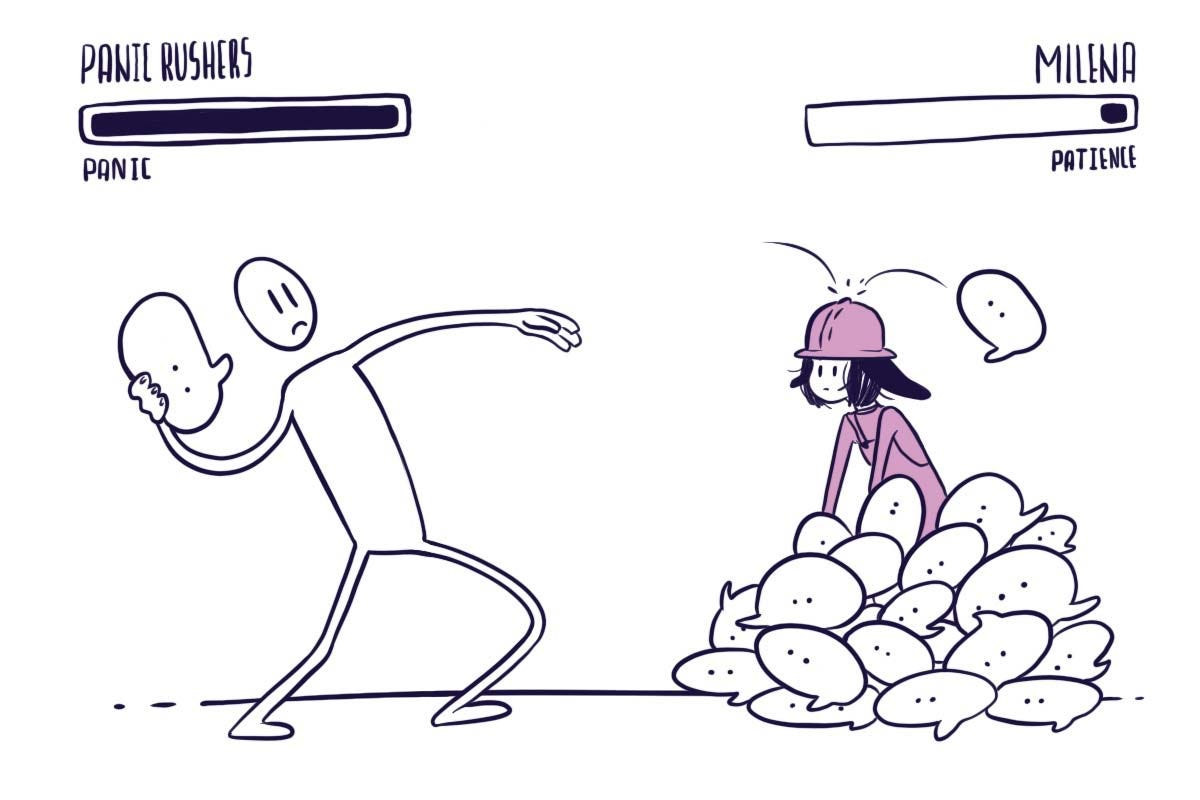Guided by this idea, one might assume that any position, connected with online communication (SMM, blogging, Patreon, crowdfunding, online marketing or any other activity involving work with an audience) is something any person would nail. Let me assure you, it’s not as easy as it seems. Internet reality plays by its own rules and you’re obliged to know them and understand what to do when dealing with people online. I have been working as a community support manager for more than two years now. It’s a massive period of time measured by the amount of communication I initiate every single day, sending cooperation offers to designers, replying to comments and reviews, creating social media posts and updates. But technical support is the sphere I always have to tinker with the most. I’m not going to pretend that my job is all smiles and happiness. I meet rude people as many times as I meet sweethearts (sometimes even more, or at least it seems like it). And everyone comes to me with their different-levels-of-difficulty problems. All people are unique, no doubt about that, but still, the experience has allowed me to shape the special types of help-seekers and define the best way of dealing with them. They remind me of kids figuring out how new toys work. Well, I mean those modest kids, not the ones ready to disassemble everything into pieces, risking to never put everything back together properly. But be careful. Don’t let this analogy give you the right to talk to humblers like they’re babies. Nobody likes being patronized, especially by some strangers online. You need to make these people feel comfortable by putting a light on every dubious topic. It’s you who must know everything about the website or marketplace, not them. It’s better to give an exhaustively detailed answer about all the points and beyond. And by beyond I mean anticipate — think of the highly possible problems people might face — and warn them in advance. One massive letter instead of several small ones will smash the humbler’s potential threats and save you a lot of time. They first make some silly mistakes due to inattention or haste, then blame it on everything around. Hotheads always suspect platforms in plotting against the users, trying to see scum everywhere. I implore you to keep it together no matter what accusations fly towards you (there’ll be insults too, be prepared). Apart from a detailed answer and instructions, try to make everything transparent. Attach screenshots. Explain the subtleties. Don’t make it sound defensive or overcrowded with sweetness. Hotheads consider such things as dust in the eyes — one of your sly techniques to trick them, obviously, duh! A reserved style, thoughtful explanations, and you won’t piss a hothead off even more. In the best scenario, a hothead can even apologize in the end, but it’s as rare as unicorns. After that, you see a Facebook notification and Instagram direct message. All from the same person. The cherry on this cake of panic is an irrelevant review about your work, partly repeating the messages you’ve already read on all your social media. Panic rushers don’t spend time waiting for help. Instead, they go and mess things up even more, turning a small issue into a tremendous crisis, which you’ll be solving for the rest of the day. You just grin and bear it. What can be done to minimize the hustle? Collect all the requests in one place, on one social network instead of responding to every message. The remaining comments must be replied to separately. Just mention that you’ve sent a private message to the person. Don’t spit it out there, it’ll make other users confused. Think of panic rushers and their actions as if you were a rescuer, dealing with the consequences of a natural disaster: The damage was done, now you can only clean it up. This article was written by Milena Abrosimova, and illustrated by Milka Oxana. Milena is the Content Designer at TheDesignest, and she originally published this article on Better Marketing, a publication providing advice that works and covering digital and social media marketing, tools, and case studies. You can read the original article here.



